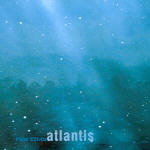There aren’t many contemporary composers who can match Peter Eötvös in making music that is both intellectually stimulating and emotionally gripping, and these three orchestral works are perfect examples of his power to inspire both awe and humility in the listener. When his gestures are big, they’re huge, as with 10 percussionists who roar out of Atlantis. And when they’re small, as in the flute and clarinet duet that closes 1996’s Shadows, they are desolate and disconsolate voices.
Regardless of its very modern writing, the immediacy, scope, and otherworldly majesty of 1995’s Atlantis would make it an ideal candidate to change the mind of someone who thinks he or she doesn’t like contemporary music. (If you like Holst’s The Planets, you’ll love Atlantis!) That’s not to say it’s easy listening, but it is accessible in its almost programmatic form. Each movement shifts from the netherworldly harmonies representing the lost city to close with remnants of another almost-lost world: Transylvanian folk music, played on either a violin or the cimbalom, a hammered dulcimer.
Eötvös’ gift for playing with physical and aural space, and his fascination with the relationship between the physical world and the microcosm of the individual, reemerges in 1993’s entrancing Psychokosmos, inspired in part by the Big Bang theory. And this taste of 1996’s Shadows excites my interest in hearing the work live, as the acoustic setup of the players figures particularly prominently into the piece’s concept. These performances (the first two conducted by the composer with WDR Cologne, the last by Hans Zender with the Südwestfunk Symphony Orchestra) feature especially sensitive solos by cimbalom player Márta Fábián, flutist Dagmar Becker, and clarinetist Wolfgang Meyer. These were all recorded live, and the sound fidelity is admirable.
































